
Editor

Editor
In his new film, Erwin Wagenhofer is looking for the good and beautiful in this world.

Editor
LKA-Zielfahnderin Hanna Landauer and her new colleague Röwer travel to Montevideo to provide the couple Tezlaff. It once kidnapped an industrialist and extorted 10 million ransom. The money has since disappeared.
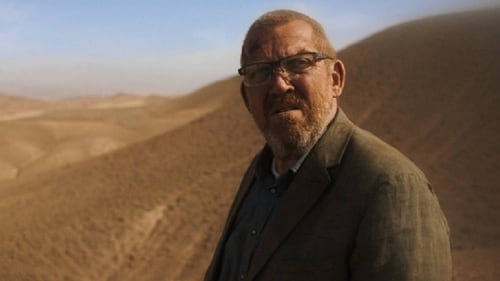
Editor
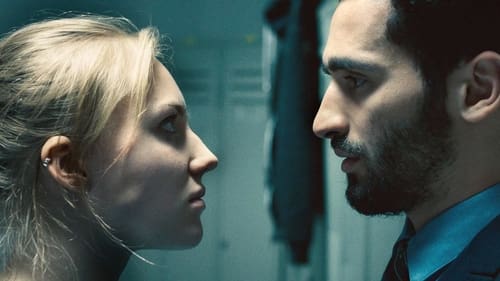
Editor
Seventeen-year-old Lena meets 19-year-old Farid, a young Muslim. She has a clear-cut attitude towards his culture and religion: utter rejection. Despite their differences – or perhaps because of them – they fall in love.
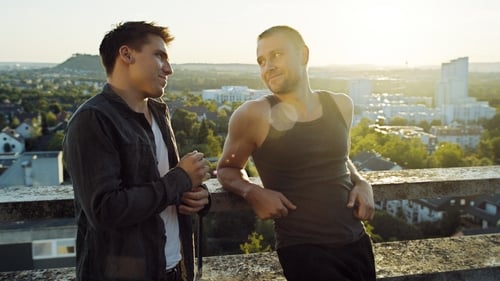
Editor
Marc (Hanno Koffer) es un agente de policía que vive con su novia Bettina, embarazada, y con la que en apariencia mantiene una genuina relación de amor y comprensión. Es una pareja feliz, pero las dudas llaman a la puerta de Marc cuando conoce a Kay (Max Riemelt) en un curso de formación. El desconcierto, el miedo, la incomprensión de sentirse atraído por otro hombre, una clase de deseo que hasta ahora desconocía, que incluso repudiaba, despierta dentro de él.

Editor

Editor
A german film about a rampage and the consequences in society.

Editor

Editor

Editor

Editor
Berlin during the Nazi reign: Young music student Ursula is a talented musician and a fervent admirer of the "Führer". When she is asked to assist renowned composer Broch, who was ordered to compose a cantata for Hitler′s 50th birthday, it first seems like a dream fulfilled. Over the time, Broch and Ursula fall in love, and her relationship with the former communist gradually changes Ursula′s perspective on the realities of Nazi Germany. But falling in love with a Nazi means a huge moral conflict for Broch.
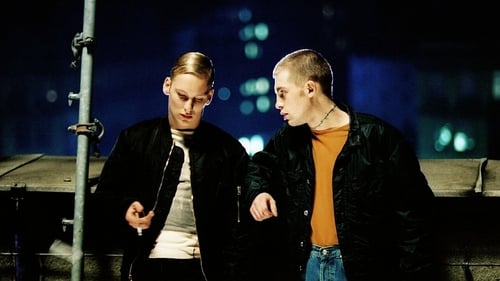
Editor
Ingo Hasselbach, whose parents were Communist Party members in East Germany during his childhood, has lived at both ends of the political seesaw. The question of how people reach a change of heart is a profound one; Hasselbach describes the external forces that led to his founding Germany's first neo-Nazi political party and the internal ones that led him away from it five years later.

Editor
Die Polizistin is a documentary by Andreas Dresen about the life of a young police woman who is faced with the difficulties between her responsibilities at work and her personal responsibilities.
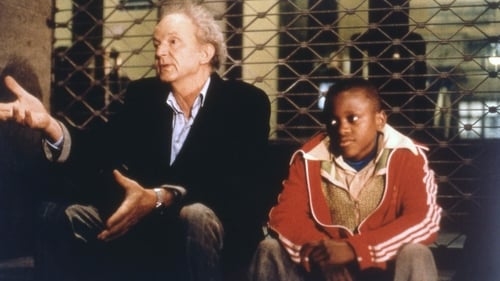
Editor
The Pope is in town and the night of his stay is anything but heavenly for some of Berlin′s inhabitants. Rich and poor, down-and-outs and policemen, street kids and taxi drivers - in their search for a little bit of happiness, they all end up on an amusing and at times harrowing odyssey through the labyrinth of the big city.

Editor
Helma Sanders-Brahms directs this inventive film that uses the verse of Jewish poet Else Lasker-Schüler and Nazi poet Gottfried Benn to dramatize the passionate, real-life affair between the two unlikely lovers. Forced out of Germany, Lasker-Schüler makes her way to Jerusalem even as Benn discovers the true nature of the Nazi ideology he had once championed. Lena Stolze and Cornelius Obonya star.

Editor

Editor
Animated short by Heinrich Sabl.

Editor
No folkore, no rituals, no klezmer, no political statements, no twee Berlin Jewish quarters. This film is an attempt to make an imageless film; a plea for a religion of imagelessness, of words, of thoughts.

Editor
In 1936 Nazi Germany, a young, innocent apprentice, full of Olympic fever, leaves his rural village to see the ceremonies in Berlin. Upon arriving in the capitol, he meets a widow and a relationship blossoms. They spend an idyllic summer at her lakeside home, but the forces of totalitarianism cannot be held at bay and soon invade their lives.

Editor

Editor
Actor Ernst Stein, having abdicated from the stage in 1968 in protest of the Soviet invasion of Czechoslovakia, has long since retreated from the world around him. In a remote house encircled by an overgrown garden, he lives in a world of dreams and memories. Suddenly, in 1989, an out-of-kilter society sends forth its progeny. Young people, tramps and characters of all sorts take refuge with Stein for a short span, carrying the turmoil of the times into his house.
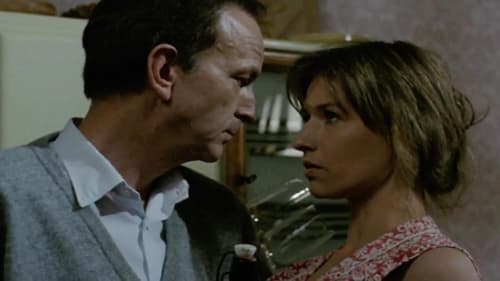
Editor
Winter 1968. Historian Dr. Dallow is released from prison. He is still trying to cope with and understand why he was put behind bars for 21 months for defamation of the state. His supposed "crime:" for five minutes he accompanied a cabaret chanson on the piano. The film shows what "ordinary socialism" was like, letting the audience feel the threat under which the people in the GDR had to live over many years.
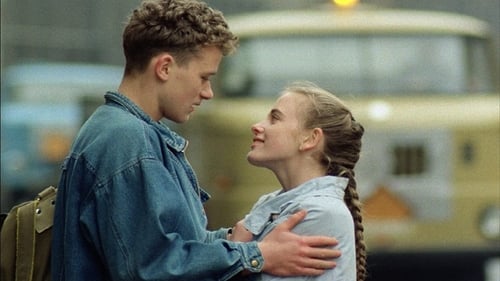
Editor
Frank, a tenth grade student, falls in love with his classmate Regine. His father is a well-connected plant manager in the GDR; Regine's mother is a single parent with four children. Regine wants to become a kindergarten teacher, but her grades are poor and she is not allowed to apply for technical college. Frank champions her and seeks an open discussion about these rigid regulations. But his criticism is nipped in the bud.

Editor

Editor
18-year old Georg and 13-year old Barbara have been playing together as children. Play becomes love later, which leads to a catastrophe , as their parents are hostile leading to file a report to the court, as Barbara is still under age.

Editor
Susanne (17) and Robert (18) want to get married, but because Susanne is still under-aged, she needs parental permission. With twin babies and tight finances, the newlyweds soon feel overwhelmed, and dealing with everything makes them forget the love that originally brought them together.

Editor
This biographical film is set in 1937, with Fallada suffering the effects of living under a microscope. The film details his decline, as he is intermittently imprisoned and threatened in order to motivate him to write for the Fatherland. Even the attention of his kind, patient wife and loving children begin to feel oppressive to him. This is one of the few films to take a serious, in-depth look at the tribulations of a creative artist pulled in all different directions by the real world.

Editor
Christine inherits a sailboat from her father, whom she barely knew. Christine is a divorced single mother and her job at a research insitute leaves her with too much work and too little time to sail. She can't find anyone to buy the boat at full value, so she tries to repair it over the winter in the hopes of being able to get a better price in the spring. Working on the boat become something of an obsession to the detriment of Christine's relationships with her son, boyfriend and collegues. When the boat is finally ready to sell, she isn't sure that she is willing to part with it after all.

Editor

Editor
1942. The members of the Voß family, mother, two daughters, a daughter-in-law, and a son-in-law, are living in a house at the river. A fellow soldier of son Paul, who fights at the eastern front, delivers his greetings and an embroidered Russian blouse for Emmi, Paul′s wife. Daughter Agnes, whose husband is also fighting in the war, receives a fur vest from the junior partner who is stalking her. Obviously, the vest is also loot from the eastern front. When the family receives news that Emmi′s husband has been killed in action, the war finally enters the house at the river. Emmi commits suicide while Agnes′s husband returns as a cripple from the war front. At home, he has to learn what a price his wife had to pay for the "Russian fur".

Editor

Editor
This tragic love story relates ten decisive years in the life of the great Romantic poet Friedrich Hölderlin, played by a young Ulrich Mühe.
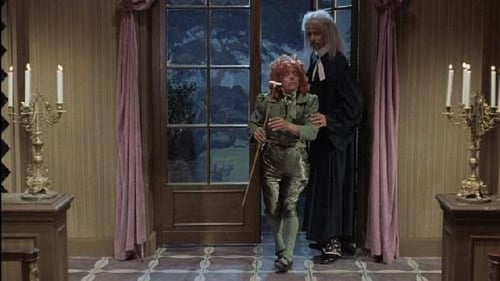
Editor

Editor

Editor
Puberty drama about the first love of a 15 year old girl from Berlin.

Editor
Otto Scheidel (Manfred Krug) has been captain of the Elbe steamer Jenissei for over twenty years, but his ship, the last of its kind, is going to be converted into a floating restaurant. Otto, whose his strong attachment to the ship has already cost him his relationship with his girlfriend Caramba (Renate Krößner), refuses to take another job and instead joins a railway construction brigade.

Editor
On a forest road in the Brandenburg March, village teacher Potsch accidentally encounters the distinguished Professor Menzel, who got stuck there in his car. In the conversation that ensues, Menzel and Pötsch quickly discover that they both are great admirers of the early 19th-century writer Max von Schwedenow who was born in the area.

Editor
Nina Kern, a divorced woman in her late twenties, will soon be fully deprived of her custody rights for her three children, who already reside in a home for the displaced due to Nina’s many years of willful neglect. Although she has broken her promise to change her moral conduct many times, she is given one last chance on probation.

Editor
Jonas and Ines are in love and want to spend their vacation together camping on the Baltic coast. But Ines’s narrow-minded parents intervene and insist that the young couple joins the family vacation. Problems arise, so everyone ends up traveling to the Bulgarian Black Sea on their own. Along the way, Jonas meets a beautiful Dutch girl who is going to India via Turkey…

Editor
In 1903, Jan Anskath and his half-brother Martin are living in Rajgorod at the border between Russia and Prussia – Jan on the Russian, Martin on the Prussian side. Both are occasionally smuggling stuff over the border. But while Jan acts from political conviction and is smuggling illegal writings over the border, Martin is only interested in the money. That is why he does not question his shadowy client when he sneaks out refugees into Russia. But then it becomes evident that the distinguished gentleman has robbed the refugees from all of their belongings, only to turn them over to the authorities of the Czar.

Editor
Karl Erp is a middle-aged man with two children and a boring marriage. After starting an exciting affair with his intern, Miss Broder, he leaves his loveless marriage and moves in with his lover. Under pressure from Miss Broder’s mother, Karl once again promises marriage. He finds, however, that the excitement that drew him to her in the first place doesn’t carry over into their daily lives.
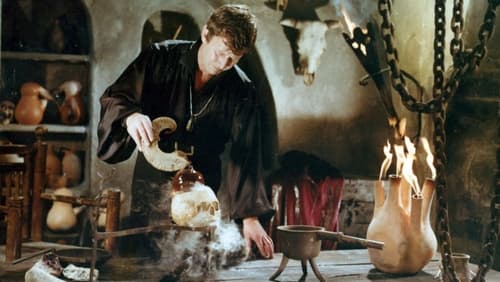
Editor
The evil and powerful King Magus brutally subjugates the people of his kingdom. Anyone who does not want to submit is turned into an animal and locked in a cage. Magus kidnaps the girl Hanna, whom he wants to marry. But Hanna refuses, and her lover, the shepherd Elias, goes to the castle to free her. He learns from Magus' servant Pravos that a mirror gives the king magic power and immortality and that he can only be defeated by water from the Moon Lake. Elijah sets out on his journey to the Moon Lake. Will he withstand the dangers and finally achieve victory over the king? Wrid he be able to free Hanna and the whole kingdom?

Editor
When he reaches age 18, Peter is released from the children's home where he grew up, but this does not mean he is truly ready for adult life.
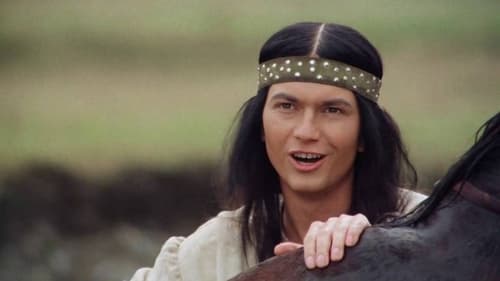
Editor
After a ten-year absence, Severino returns to his tribe, the Manzeneros, who live on the edge of the Argentinian Andes. The reason for his visit is to take his younger brother back with him up north. However, in his home village, Severino finds a tense and troubled situation. His father Raymundo has recently been found dead. He was on the tracks of a gang of white bandits who had stolen cattle from both Indians and settlers. A sheep breeding company is behind these criminal machinations. This company seeks to drive the Indians and settlers off the fertile land so that they can purchase it cheaply.
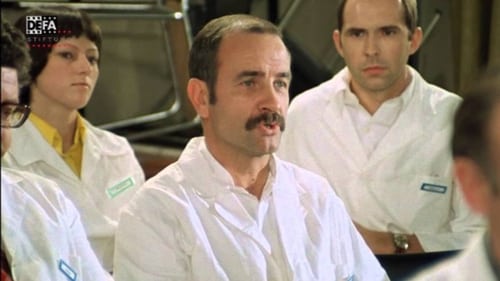
Editor
When Dr. Schmith's proposal for international research on infant mortality is rejected, he decides to leave East Germany and strikes a deal with an escape agency that promises him a leading position at a children's hospital in West Germany. But then the decision is reversed: the project is approved and his international colleagues want Dr. Schmith to head the GDR section. Moreover, he falls in love with his new colleague, Katharina. Schmith initially tries to ignore the arrangements he made with the escape agency, but they blackmail him. Things soon turn deadly...
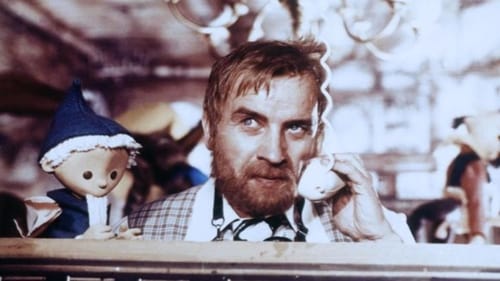
Editor

Editor
Jette and Johannes have been living together for two years when Johannes suggests that they "legalize" their relationship. Jette loves him, but the proposal of marriage terrifies her.

Editor
For thirty years, Karl Achilles has been working at the chemical collective in Bitterfeld. But now his last day as a master at the plant has come. He is about to retire; even if Karl, who finds ending his working life difficult, wanted to stay on, it would not be possible. Karl’s colleagues have arranged a farewell dinner for the retiring master at an outdoor restaurant. But on his last day of work, before the farewell dinner, he meets all sorts of people: both colleagues and people, who do not work at the plant. A mosaic of the biography of a person who found fulfilment in his work and now has to look for the meaning of his life anew.

Editor
Screen adaptation of Eichendorff's famous novella. A penniless drifter roams the land with his violin and preferably sings his songs to beautiful women. Two of his female admirers get him employed as a gardener at a castle. Yet he doesn't settle down for long, and moves on to his next temporary job as a customs officer. Finally, he travels to Italy where he joins the gang of Rinaldo Rinaldini and eventually meets the love of his life.
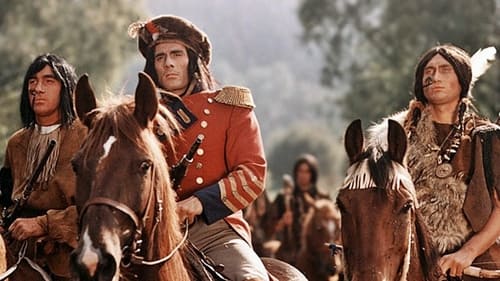
Editor
At the beginning of the 19th century, white settlers regularly make and break treaties with the Native American inhabitants to gain possession of vast hunting grounds at ludicrously low prices without any bloodshed. Harrison, Governor of Indiana, has made and broke no less than fifteen such treaties, driving increasing numbers of Indians out to the infertile West. To put a stop to this criminal practice, the Shawnee Chief Tecumseh tries to unite the Native Americans.
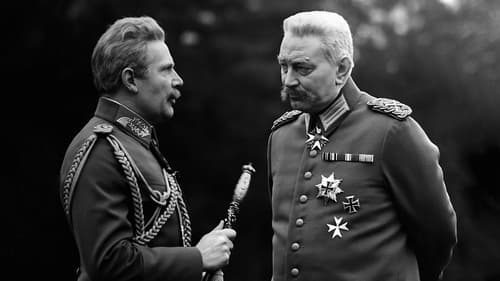
Editor
October 1918: Karl Liebknecht is released from prison and Berlin workers celebrate his release. Although WWI is almost over, the German Kaiserreich in vain sends its last reserves to the slaughter. The working class is in a rebellious mood; the uprising of Kiel’s sailors against war and militarism sets off a call for revolution led by Liebknecht. On November 9, Liebknecht declares the Free Socialist Republic of Germany. But pro-Kaiser military and right wing Social Democrats oppose him.

Editor
19-year old Peter is working to gain practical experience for his planned medical studies. But his life turns into confusion as he unexpectedly comes a father.
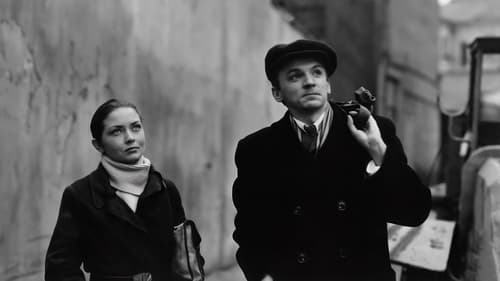
Editor
A train travels through the vastness of Russia, a train with German prisoners of war returning home, and Viktor Kleist, a young German communist from an intellectual home in Munich, travels back home with them. During the journey, the stations on his way to Lenin wake up again.
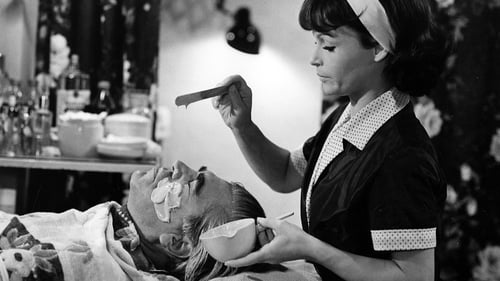
Editor
Ewald Honig can't break his bad habit. Hardly has he crossed over into the GDR when the strapping, well-built man in his late fifties once again starts courting ladies with fraudulent intentions. His daughter Ina, burdened with the same genes, specializes in married men in their prime. Two criminologists are on the Honigs' trail, but they soon have enough to handle just dealing with each other. Meanwhile, Honig and his daughter have left their wayward path of their own accord.

Editor
Adam receives a flashlight with special powers: every liar it shines on flies into the air. Production was cancelled in 1965/66 due to the film's political content. Only in 1989/90 could the director reconstruct the film, where missing sounds and images are replaced with script inserts.

Editor

Editor
A new pupil has joined the seventh grade and - as is often the case - is met with scepticism. What is more: Mathias' classmates are angry because he is frequently late, goes home early and, on top of it, performs badly at school. They have to acknowledge, however; that he is very gutsy. This proves especially true when it becomes a question of passing a dangerous test: who can hold out longest in the ice cellar?






































